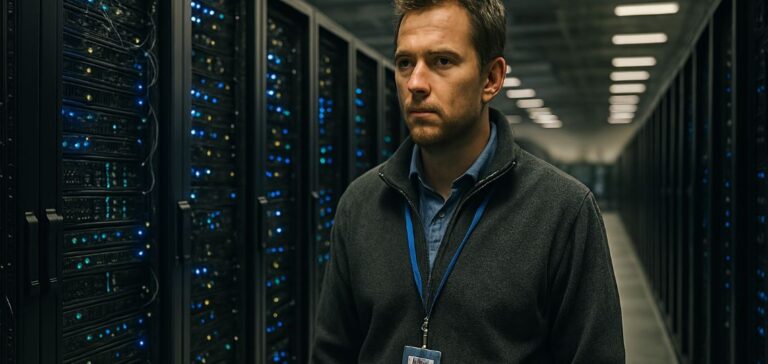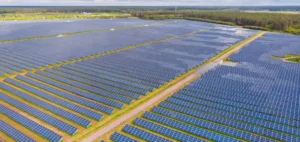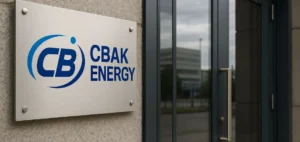Global electricity consumption by data centres is set to exceed 945 terawatt-hours (TWh) by 2030, driven by the rapid growth of artificial intelligence (AI), according to a report published by the International Energy Agency (IEA). In 2024, consumption stood at approximately 415 TWh, representing 1.5% of global electricity, and has been increasing by 12% annually over the past five years.
The development of generative AI, which relies on massive computing and the processing of extensive databases, is a key driver of this trend. The IEA estimates that by 2030, data centres will account for nearly 3% of global electricity consumption, a share comparable to Japan’s current national usage.
Energy capacity and geographic concentration
Data centre infrastructure varies significantly across regions. A 100-megawatt facility consumes as much electricity as 100,000 households, but new projects are reaching capacities twenty times greater, equivalent to the consumption of 2 million homes. These installations are generally located near major urban areas, increasing pressure on local distribution networks.
The United States, China and Europe alone account for 85% of global data centre consumption. The IEA identifies the United States as a region of particularly strong growth, with data centres projected to represent nearly half of the country’s additional electricity demand.
Energy supply and carbon emissions
In response to this increase, the US government recently established a National Energy Dominance Council to boost electricity production and maintain strategic advantage over China. The IEA report indicates that coal, currently supplying 30% of the energy used by data centres, may gradually be replaced by natural gas and renewables, considered more competitive and accessible.
Rising demand is expected to drive carbon dioxide (CO2) emissions from 180 mn tonnes today to 300 mn tonnes by 2035. This would still represent less than 1.5% of the global energy sector’s total emissions, according to the IEA. The agency also notes that AI-related efficiency gains may partially offset these emissions.
Evolution scenarios and uncertainties
The IEA warns against exaggerated expectations regarding AI’s role in the energy transition. While artificial intelligence offers optimisation opportunities across sectors, its widespread adoption could be counterbalanced by increased fossil fuel consumption. The report states that no single technology, including AI, can independently address today’s global energy challenges.
Fatih Birol, Executive Director of the IEA, emphasised the need for a proactive policy framework to anticipate rebound effects and manage the digital sector’s energy impact. The 302-page report is the organisation’s first specifically dedicated to AI and its implications for the energy sector.





















